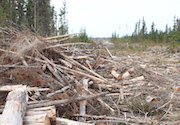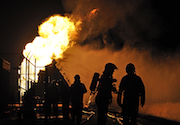| |
| |
| |
 |
|
@{mv_date_MMM d, yyyy}@ |
|
| |
To date, grants have supported the removal of 64,000 cubic metres of slash (debris from forest fires) and over the next two years, the total will reach 200,000 cubic metres.
» Read more...
The Socio-Economic Council (SER), an independent advisory board of the Dutch government, says the Netherlands should phase out using biomass for electricity and heat because sustainably produced biomass is supposedly too scarce.
» Read more...
The findings of the Dutch Social and Economic Council fly in the face of international science regarding biomass, writes WPAC’s Gordon Murray. In fact, the UN Intergovernmental Panel on Climate Change (IPCC) has recognized the GHG potential of biomass.
» Read more...
Greenlane Renewables has signed a definitive joint venture agreement with SWEN Impact Fund for Transition with the purpose of providing biogas upgrading as a service (UaaS) to developers and owners of RNG projects in Europe.
» Read more...
Air bp is collaborating with Airbus to supply sustainable aviation fuel (SAF) for delivery flights from Airbus’ facility at Hamburg Finkenwerder Airport. The first aircraft are two Air Transat A321LR destined for Montreal.
» Read more...
|
| |
 |
 |
| |
|
| |

Combustible dust-related fires and explosions are a global problem, and in the United States alone, 50 dust-related incidents occurred between 2008 and 2012. This updated edition of NFPA 652 is essential to manage the dust-related fire, flash fire, and explosion hazards in industries that use dust collection and handling equipment, or that have processes that may generate combustible dust.
Experts in fire and explosion safety for areas with combustible dust worked together to make NFPA 652 an even more effective tool for avoiding these destructive and deadly events, and is a go-to source for the information necessary to help handle combustible dust safely in any industry, anywhere around the globe. NFPA 652 serves the chemical, wood processing, metals, and agricultural industries.
>>Order Now |
| |
|
| |
 Canada’s forest sector harvests less than one per cent of Canada’s commercial forests each year. The wood pellet sector uses less than 0.04 per cent of Canada’s annual forest harvest, using the portion of the forest that has been rejected by the other traditional forest sectors.
» Read more...
Canada’s forest sector harvests less than one per cent of Canada’s commercial forests each year. The wood pellet sector uses less than 0.04 per cent of Canada’s annual forest harvest, using the portion of the forest that has been rejected by the other traditional forest sectors.
» Read more... |
| |
 If not managed properly, syngas can cause catastrophic fires, explosions and deflagrations and resultant injuries, loss of life and equipment. As a result of several recent syngas explosions, WPAC’s Safety Committee decided to produce an educational video to help operators minimize the risks associated with syngas.
» Read more...
If not managed properly, syngas can cause catastrophic fires, explosions and deflagrations and resultant injuries, loss of life and equipment. As a result of several recent syngas explosions, WPAC’s Safety Committee decided to produce an educational video to help operators minimize the risks associated with syngas.
» Read more... |
| |
|
| |
|
|
| |
| |





